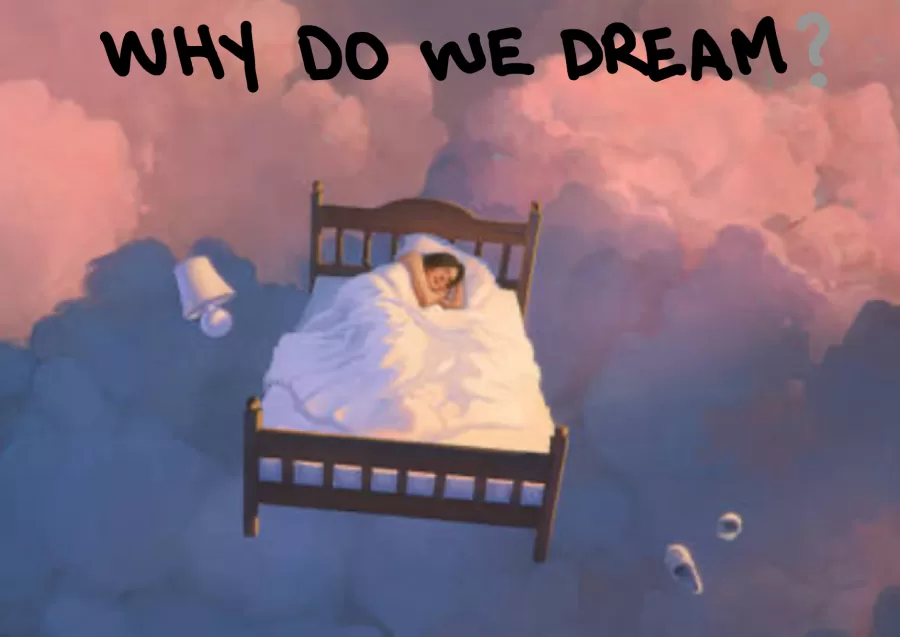What Do Your Dreams Mean?
Photo Illustration: Maya Garcia
Overnight, at some point, most people enter a state of REM or rapid-eye-movement where they find themselves in the deepest part of their sleep cycle.
April 25, 2023
Do you ever wake up in the morning and try to remember the dream you had the night before? Isn’t it hard to remember?
I did some research onthe study of dreams and how they really work. You may notice that your dreams are extremely realistic. And what does it mean to dream about someone? What do falling dreams mean? What about reoccurring dreams?
WHAT ARE DREAMS?
So what are dreams? Behavioral sleep medicine expert, Michelle Drerup, PsyD, DBSM states that psychologists such as Sigmund Freud and Carl Jung developed theories to explain dreams and what they mean. She explained how Freud thought dreams are repressed content, ideas, or themes.
“Dreams are mental imagery or activity that occur when you sleep,” explains Dr. Drerup.
You can dream during any stage of sleep, but your most vivid dreams usually occur during rapid eye movement or REM sleep. This is the period of sleep when your brain is very active, your eyes move quickly behind closed lids, and you have a temporary loss of muscle tone.
WHAT ARE NIGHTMARES?
Nightmares can be caused by many factors, including stress, anxiety, trauma, side effects of medications, lack of sleep, and certain illnesses. They can also be triggered by certain events or experiences, such as a scary movie or a traumatic event. Nightmares are more common in children than in adults and occur more often during times of stress or anxiety. Although nightmares can be unpleasant and disturbing, they are a normal and natural part of the sleep cycle and most people experience them from time to time. If you have frequent or severe nightmares, it may be helpful to talk to a doctor who can help you identify the causes and develop strategies to deal with them.
WHAT IF YOU DON’T DREAM?
What if you don’t dream? Or, what if you don’t remember them?
It’s actually quite common not to remember your dreams, but most people do dream. In fact, people typically dream several times each night during the REM (Rapid Eye Movement) stage of sleep. However, if you are not getting enough sleep or if you are taking certain medications, you may be less likely to remember your dreams. Additionally, some people may have a condition called REM sleep behavior disorder, which causes them to act out their dreams while they are sleeping, yet still not remember them.
WHY DO WE DREAM?
There are many theories about why people dream.
Some researchers believe that dreams help us process our emotions and memories, while others believe that they are a byproduct of brain activity during sleep. Many factors can influence dreams, including our daily experiences, our unconscious desires, and our physical and emotional state. Some people believe that dreams have symbolic meaning and can provide insight into our inner thoughts and feelings.
ARE DREAMS SYMBOLIC?
However, there is no scientific evidence to support these claims, and many experts believe that dreams are simply a natural and normal part of the sleep cycle.
DREAMS…A MYSTERY
Ultimately, the purpose and meaning of dreams remains a mystery, as scientists continue to study this fascinating phenomenon to better understand its origins and effects on the human mind and body.

























